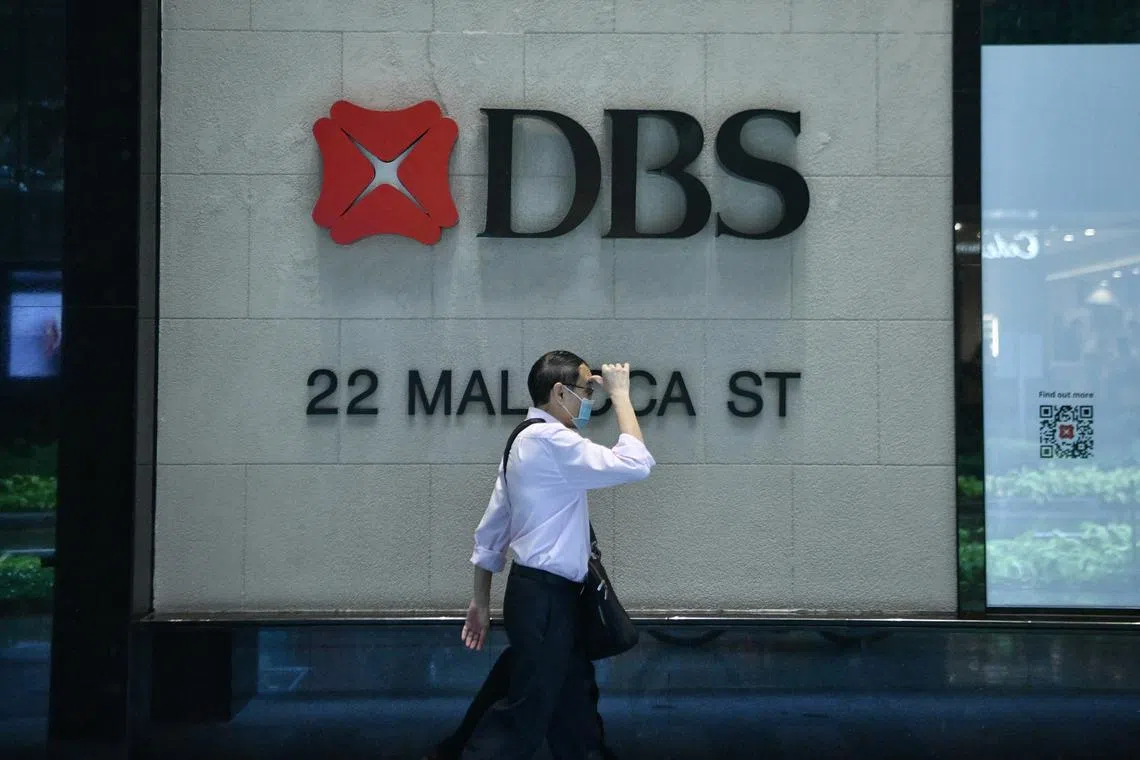S’pore live-tests digital assets trading under Project Guardian
Sign up now: Get ST's newsletters delivered to your inbox

The Monetary Authority of Singapore partners industry players, such as DBS and JP Morgan, and live tests the trading of digital assets across liquidity pools and platforms.
ST PHOTO: ARIFFIN JAMAR
SINGAPORE - Singapore has waded into the decentralised finance (DeFi) world with a live test of the trading of digital assets across liquidity pools and platforms.
The live transaction involving tokenised deposits was carried out on Wednesday as part of the Monetary Authority of Singapore’s (MAS) first industry pilot under Project Guardian.
What took place was the buying and selling of tokenised Singapore Government Securities, Singapore dollars, Japanese government bonds and Japanese yen. It was carried out by lenders DBS Bank and JP Morgan, as well as SBI Digital Asset Holdings, which is part of Japanese financial services group SBI.
MAS’ pilot also simulated the buying and selling of tokenised government bonds.
The transactions, conducted on Project Guardian’s public blockchain, used smart contracts to cut out financial intermediaries, unlike traditional trades in over-the-counter markets.
Mr Han Kwee Juan, DBS’ group head of strategy and planning, said the pilot lays the foundation for building global institutional liquidity pools that allow for quicker trading, greater transparency, higher efficiencies, lower settlement risks and economies of scale.
He added that smart contracts will reshape how trading is carried out in a trusted manner, especially when it takes place in a “permissioned market” or a market where anonymous wallets are verified using Know Your Customer processes.
“The success of this test trade also indicates the potential for creating deeper secondary liquidity across multiple financial assets and markets,“ Mr Han noted.
Mr Umar Farooq, chief executive of Onyx at JP Morgan, said at a panel session on the first day of the Singapore Fintech Festival that there are two key elements that will make the project work – the ability to verify an identity on the blockchain and tokenising things that are well understood.
Project Guardian, launched in May by MAS, aims to explore the use of public blockchains to build open and interoperable networks that enable digital assets to be traded across platforms and liquidity pools.
On the back of the first pilot’s success, MAS said it is launching two new industry pilots.
The first is on trade finance where Standard Chartered Bank will lead an initiative to explore the issuance of tokens linked to trade finance assets. The project aims to digitise the trade distribution market, by transforming trade assets into transferable instruments that are more transparent and accessible to investors.
The second will have HSBC, UOB and Marketnode work together to enable native digital issuance of wealth management products, which makes it faster and more accessible for investors.
MAS said it is open to proposals from the industry that addresses the key focus areas of Project Guardian – open interoperable networks, trust anchors, asset tokenisation and institutional-grade DeFi protocols. Interested parties can submit proposals to the FinTech Regulatory Sandbox for live experimentation.
Mr Sopnendu Mohanty, chief fintech officer at MAS, noted that with the appropriate guardrails in place, digital assets and DeFi have the potential to transform capital markets and make global financial networks more efficient and integrated.
Singapore is the third-largest foreign exchange centre in the world after the United Kingdom and the United States. Its share of global FX volumes rose to 9.5 per cent in April 2022 from 7.7 per cent in April 2019.
In October, MAS said Singapore’s foreign exchange average daily trading volumes climbed to US$929 billion (S$1.3 trillion) in April 2022, surging 45 per cent from April 2019.



